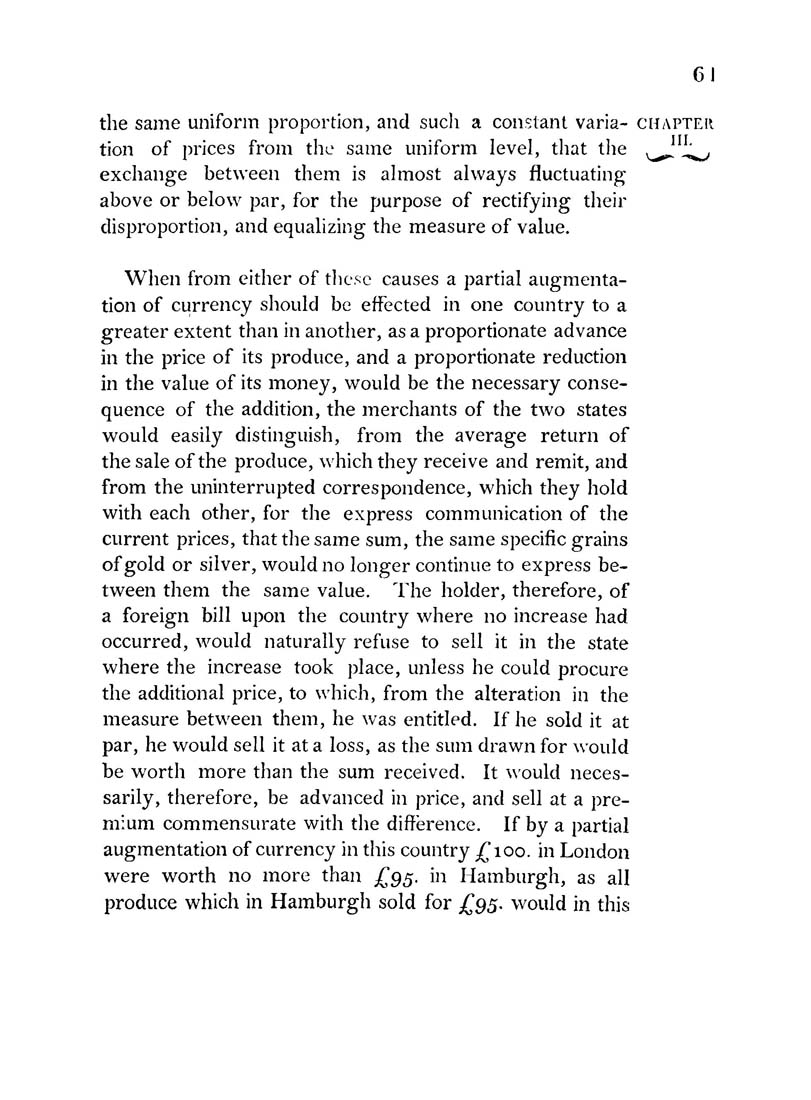CI
the same uniform proportion, and such a constant varia- chapter
tion of prices from the same uniform level, that the ^'^'
exchange between them is almost always fluctuating
above or below par, for the purpose of rectifying their
disproportion, and equalizing the measure of value.
When from either of these causes a partial augmenta¬
tion of currency should be effected in one country to a
greater extent than in another, as a proportionate advance
in the price of its produce, and a proportionate reduction
in the value of its money, would be the necessary conse¬
quence of the addition, the merchants of the two states
would easily distinguish, from the average return of
the sale of the produce, which they receive and remit, and
from the uninterrupted correspondence, which they hold
with each other, for the express communication of the
current prices, that the same sum, the same specific grains
of gold or silver, would no longer continue to express be¬
tween them the same value. The holder, therefore, of
a foreign bill upon the country where no increase had
occurred, would naturally refuse to sell it in the state
where the increase took place, unless he could procure
the additional price, to which, from the alteration in the
measure between them, he was entitled. If he sold it at
par, he would sell it at a loss, as the sum drawn for would
be worth more than the sum received. It would neces¬
sarily, therefore, be advanced in price, and sell at a pre¬
mium commensurate with the difference. If by a partial
augmentation of currency in this country jTioo. in London
were worth no more than £g5. in Hamburgh, as all
produce which in Hamburgh sold for £gs. would in this
|








